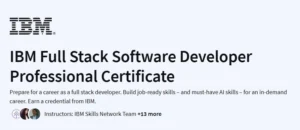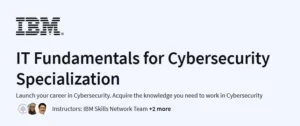What will you learn in Learn SQL Course
Write efficient SQL queries using
SELECT,JOIN,GROUP BY,HAVING, and subqueriesDesign and normalize relational databases with primary/foreign keys and indexing strategies
Perform data aggregation, filtering, and window functions for advanced analytics
Use DML (
INSERT,UPDATE,DELETE) and DDL (CREATE,ALTER,DROP) statements safelyOptimize query performance and understand execution plans across popular RDBMS
Program Overview
Module 1: SQL Basics & Setup
⏳ 1 week
Topics: Installing and connecting to a database (PostgreSQL/MySQL), basic
SELECTqueries, filtering withWHEREHands-on: Query a sample employees table to retrieve specific records
Module 2: Data Retrieval & Filtering
⏳ 1 week
Topics:
ORDER BY,LIMIT, pattern matching withLIKE, logical operatorsHands-on: Find top-selling products and filter customers by region and purchase history
Module 3: Joining Tables
⏳ 1 week
Topics: Inner, left, right, and full outer joins; self-joins; cross joins
Hands-on: Combine orders and customer tables to produce consolidated sales reports
Module 4: Aggregation & Grouping
⏳ 1 week
Topics:
GROUP BY,HAVING, aggregate functions (SUM,COUNT,AVG,MIN,MAX)Hands-on: Calculate monthly revenue, average order value, and identify top 10% of customers
Module 5: Subqueries & Common Table Expressions
⏳ 1 week
Topics: Inline subqueries, correlated subqueries,
WITHclauses for modular queriesHands-on: Use CTEs to break down a complex nested query into readable steps
Module 6: Window Functions & Advanced Analytics
⏳ 1 week
Topics: ROW_NUMBER, RANK, LEAD, LAG, running totals, moving averages
Hands-on: Generate sales trends with rolling averages and rank products by performance
Module 7: Data Modification & Transaction Control
⏳ 1 week
Topics:
INSERT,UPDATE,DELETE,TRUNCATE; transaction statements (BEGIN,COMMIT,ROLLBACK)Hands-on: Safely update inventory quantities and rollback on constraint violations
Module 8: Schema Design & Performance Tuning
⏳ 1 week
Topics: Normalization (1NF–3NF), indexing strategies, analyzing execution plans
Hands-on: Design a normalized schema for an e-commerce app and optimize slow-running queries
Get certificate
Job Outlook
SQL proficiency is essential for roles like Data Analyst, Business Intelligence Developer, and Backend Developer
Nearly every industry relies on SQL for data-driven decision making, from finance and healthcare to tech and retail
Salaries range from $65,000 to $120,000+ depending on role, experience, and location
Mastering SQL opens doors to advanced specialties such as data engineering, analytics engineering, and cloud database administration
Specification: Learn SQL
|
FAQs
- No prior programming experience is strictly necessary.
- Basic understanding of data and tables is helpful.
- The course teaches SQL syntax and queries from scratch.
- Learners will practice creating, reading, updating, and deleting data.
- Hands-on exercises reinforce learning even for complete beginners.
- Yes, core SQL concepts are applicable across relational databases.
- Syntax may vary slightly between platforms, but fundamentals remain the same.
- The course focuses on standard SQL queries and operations.
- Learners can adapt skills to any relational database system.
- Practice with multiple systems outside the course can enhance adaptability.
- Yes, SQL is widely used for data analysis and querying databases in applications.
- The course teaches querying, filtering, grouping, and joining data effectively.
- Skills can be applied in analytics, reporting, and backend development.
- Understanding database design concepts helps in real-world projects.
- Combining SQL with programming languages like Python enhances versatility.
- Yes, SQL offers more powerful and efficient data manipulation compared to spreadsheets.
- Learners will practice querying and aggregating large datasets easily.
- The course demonstrates how relational databases handle structured data.
- SQL knowledge helps automate repetitive data tasks.
- Transitioning from Excel to SQL is straightforward with practice.
- The course includes exercises for SELECT, INSERT, UPDATE, DELETE, and JOIN operations.
- Learners practice writing queries on sample databases.
- Exercises cover filtering, sorting, and aggregating data.
- Hands-on practice helps reinforce syntax and query logic.
- Additional practice with real datasets is recommended for mastery.





